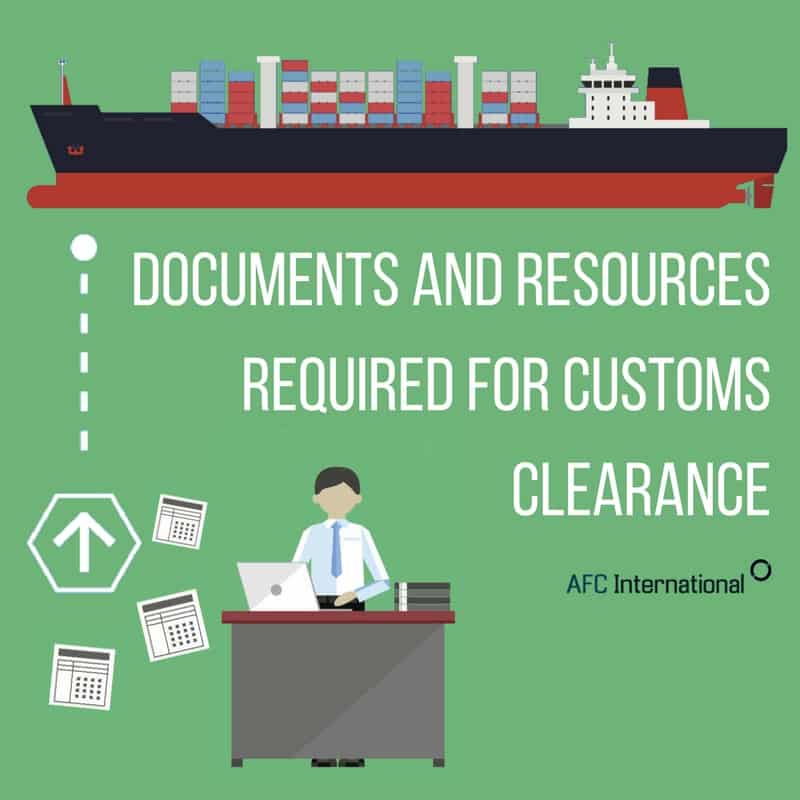Basic Documents Required for Customs Clearance

The following basic document resources are required to make customs clearance fast and easy:
Commercial Invoice
The commercial invoice contains transaction details regarding the products to be imported that include but are not limited to the purchase price, country of origin, HTS tariff classification, product description and more.
Packing List
A packing list detailing your imports, which includes the contents, dimensions and net weight of each package or container.
Bill of Lading
Issued by the carrier, an Ocean Bill of Lading, Air Waybill or Truck Manifest specifies the details of the goods being transported, such as quantity, weight type and destination. The bill of lading lists your goods in the form of a receipt and provides international transportation details.
Arrival Notice
An Arrival Notice is issued by the carrier’s agent to the consignee (and to the Notify Party on the bill of lading), to provide information about the arrival and further detail required for customs clearance.
Other forms required by the U.S. Customs and Border Protection can be found online.

Surety Bonds Provide Assurances
A party that imports goods into the United States or transports imported goods through the U.S. must provide a surety bond to the CBP to assure financial responsibility.
The bond protects the U.S. government in case the importer does not fulfill his or her obligation to pay monies (duties, monetary penalties, etc.) while the goods are in Customs custody and/or following the release of goods. Follow our surety bonds guide so you are prepared.
ISF Filings
The Importer Security Filing, commonly known as the ISF, is a CBP regulation affecting ocean shipments entering the country. The ISF alerts the CBP when high-risk shipments are en route to ensure the safety of the country’s borders. Review our ISF guide and what you need to know about ISF 10+2 filings.
Import Duty Rates

Your goods must be classified correctly to be imported properly. To avoid delays at the border, assign your goods properly with the right rates codes. Follow our six best importing resources for importers to learn more.
The Harmonized Tariff Schedule (HTS) is a system of names and numbers used to classify your goods. Use this HTS Search Tool to help you find the proper code
Work With a Customs Broker
Licensed Customs Brokers can help you achieve customs clearance success in the U.S. while avoiding import obstacles. All commodity import requirements and paperwork can be handled by Customs Brokers to make your life as an importer easier.


Leave a Reply
You must be logged in to post a comment.